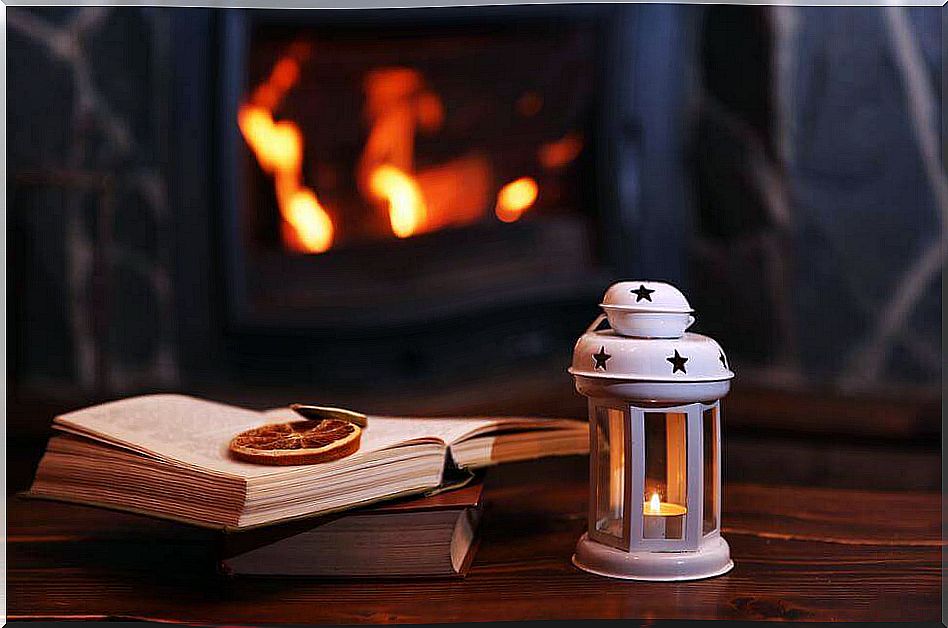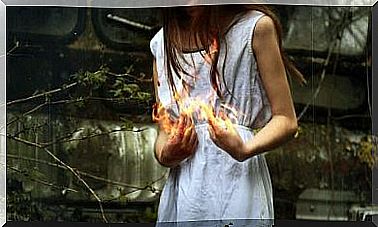We All Have A Safe Place To Take Refuge From The Blizzard

In his book “The Labyrinth of Spirits”, Zafón says that “any person who aspires to keep his judgment sound needs a place in the world where he can and desires to get lost”. Furthermore, he describes this refuge as a safe place, “an annex of the soul in which, whenever the world is shipwrecked in its absurd comedy, each individual can run to hide and lose the key”.
This reflection, partly true and partly not, makes us reflect. We all seem to have a corner of retreat or a safe space in which to feel protected. It can be a physical place, a space of our mind or a combination of both: a place where there are objects, but also memories and dreams.
It is a place where we walked with a few people and where no one entered. In it we keep those dreams that we have shared with a few people, but also those we have not said a word about with anyone; the same happens with pain.
Alicia Gris – the enigmatic protagonist of “The Labyrinth of the Spirits” – is a girl who lives almost perpetually in her refuge but who, at the same time, has yet to discover a lot about what it contains. She does not go out often, so her eyes are too tired to distinguish the shape of her surroundings and to identify what defines her and which is in her own refuge. For this reason, behind his apparent security, the portrait of an insecure character is hidden.
What do we keep in our refuge?
We cherish the scent of the people who have helped us, with a special memory for those who do it every day and for those who have done it simply to make us feel good. We also keep the hopes we cling to at the worst times and those small victories that are the fruit of what we have experienced as our best successes. With us are the people who are now dead, those we miss and cannot touch.
But also those dreams that, growing up, we left in the drawer. Dreams that are proof that there have been times when we started picking them up again, but which indicate that we then put them back where they were. “Unconfessable fantasies” and “half confessions” are also preserved, among which many retain that of leaving everything and starting to live.

In our refuge we also keep our fears, our most fragile and vulnerable part. The fears we have named, but which continue to terrify us; those that we perceive, but that we do not face, because it scares us to discover what they really hide.
Furthermore, we retain memories of situations in which we have offered the worst version of ourselves. But also of those in which we have overcome ourselves and for which, reliving them with our conscience, we ask ourselves how we were able to do it, if we are nothing but grains of sand in this infinite universe.
In this refuge the feeling of immensity is mixed to occupy a good part of our ego with our conscience, related to the fact that we are unrepeatable; but also a feeling of smallness for how small we are compared to the immensity of the universe, related to the fact that we are all replaceable.

It is a refuge of passage, not of permanence
Spending too much time in this refuge fills our eyes with a sea of hardly navigable nostalgia. It makes us part of the past and the future, completely eliminating the present in which our senses move. People who live in this place for a long time spend the day as automatic pilots and project onto others a feeling of absence and distance.
In fact, all the positive things placed on the shelves or stacked on the floor near the fireplace end up releasing an aroma of sadness. It is then that our inner self completely detaches itself from the image we project, because the more time we spend in this place, the more complicated it becomes for someone to approach it. The others drift further and further away.
Well, then what can we do to prevent this place from flooding us with negative emotions?
- Do not isolate yourself from what is happening around you. If you want, spend a few days without reading the news or watching the news, but don’t sever ties with the people who love you.
- If you feel misunderstood, try to make yourself understood and don’t go away. As you distance yourself, that feeling of misunderstanding will only increase.
- Always set yourself short-term goals. Model the functions of your stress tolerance, but always keep a plan that will satisfy you.
- Be aware of where you are, not only physically, but mentally as well. When you enter that shelter, take note and don’t stay too long. Balance the time you spend alone or in company.
As we have seen, this refuge can often save us, but it can also turn into the worst trap to fall into. Enjoy it to the fullest when you take refuge there, but don’t reduce your life to what is enclosed in four walls, be they real or imaginary.









